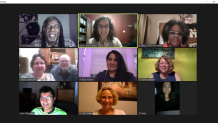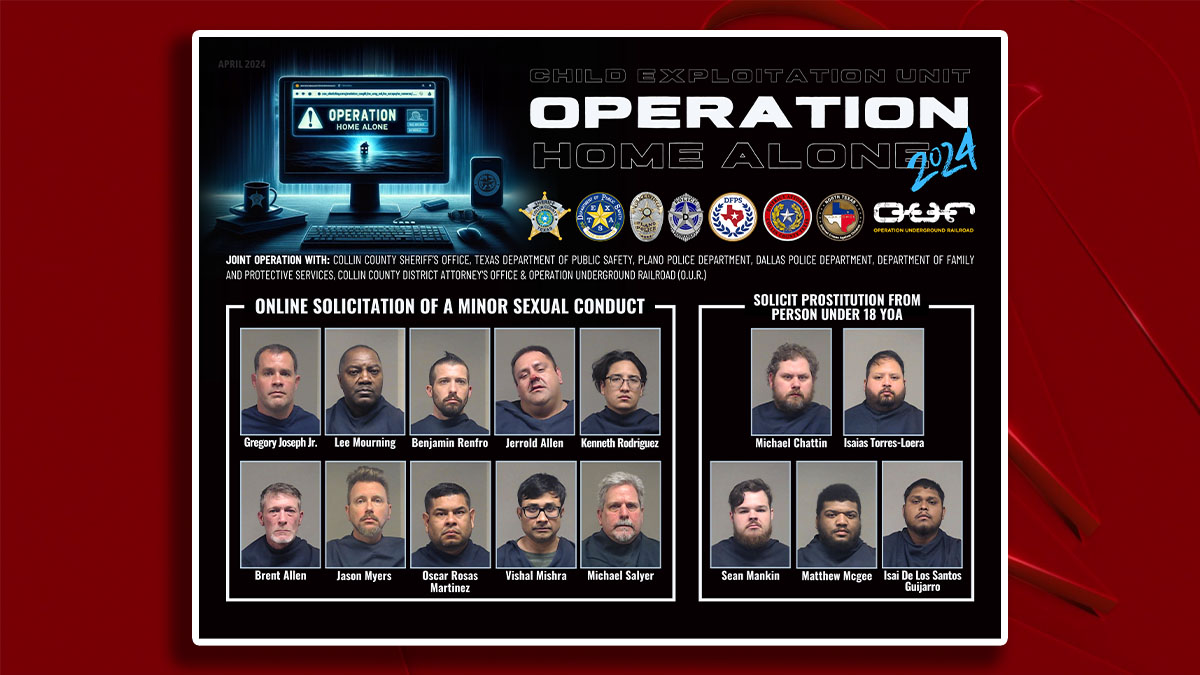We've heard a lot over the last year about the need for conversations about race. They can be difficult, and uncomfortable - yet also enlightening and rewarding.
The dialogue is at the heart of Multicultural Alliance, a nonprofit in Fort Worth with a 70-year track record of breaking stereotypes and building connections.
It's done with high school students at summer camp and with adults at the table talking about faith and race.
"I think people need to expect that they're gonna be uncomfortable, perhaps, with this conversation but enter into it in good faith that they are there to learn and not to be judgmental or to be harsh," said Cheryl Kimberling, the president of MCA.
Get DFW local news, weather forecasts and entertainment stories to your inbox. Sign up for NBC DFW newsletters.
"What I like to say is, we build inclusive communities through creating environments for brave conversations. And we're an organization that brings people together for connection and dialogue," said Adena Cytron-Walker, the vice president of programs.

The pandemic brought an abrupt stop to the nonprofit's programs like the beloved Camp Community for high school students and the meaningful dialogue that comes in group conversations called table talks.
Local
The latest news from around North Texas.
Yet the murder of George Floyd was a moment to act.
"We've been able to have conversations, and as Adena talks about, brave conversations with people about George Floyd's life and his death. We feel like that has been a tipping point about race relations across the United States," Kimberling said.
The women adapted and moved the table talks from the usual settings, like a home, into virtual spaces and with questions specific to race.
"One generic question might have been, 'when in your life did you feel like you were different?' That could be related to any identity. So, we took those that could be interpreted and explained in a variety of different contexts. We took those and streamlined them more to race. So, 'when have you been in a situation where you felt discriminated against based on your skin color?'" Kimberling explained.
"Many white individuals have reached out and said, 'yes, we want to learn. And we know we don't know and we know we don't understand and we know we may not completely understand, but we would like to listen and learn as much as we can,'" Cytron-Walker said.
"We'd love to have diversity to make the conversation more robust with more questions and answers. But sometimes, we do end up with one gender or one race or one ethnic identity. So as much as we can, we do like the mix because we think that it gives a deeper conversation but that doesn't mean that people of all one identity cannot learn from each other either," Kimberling added.
"There are some times where it is an all-white group. And those are really powerful groups also. Because, I believe that in those groups, white people let their guard down even more and deeper work can be done because there is a vulnerability that people are a little bit more comfortable sharing in that space. And a lot of growth happens also," Cytron-Walker said.
"We know that prejudice is a learned behavior. It's not genetic. And we believe it can be unlearned and that we can unlearn it from each other," Kimberling said. "And our mission, really quite simply is to build inclusive communities. with that, we hope to eradicate bigotry and prejudice. And we bring people together to share their stories and their experiences and also we feel like there's an educational piece to it."
"When we have multiple table talks in one large room, and I look around, and I see that all of these people are having similar types of conversations, it also provides a lot of hope; gives me a lot of hope for what's possible in the future and for race relations in the future," Cytron-Walker said.
ABOUT MCA:
The Multicultural Alliance provides programming and educational forums that address the opportunities and challenges of living in a pluralistic society.
The organization promotes understanding and respect among all races, religions, and cultures through advocacy, conflict resolution, and education. In affirmation of the founding principles, the organization exists to promote individual and group dignity, cooperation, mutual understanding, and respect among all peoples.



